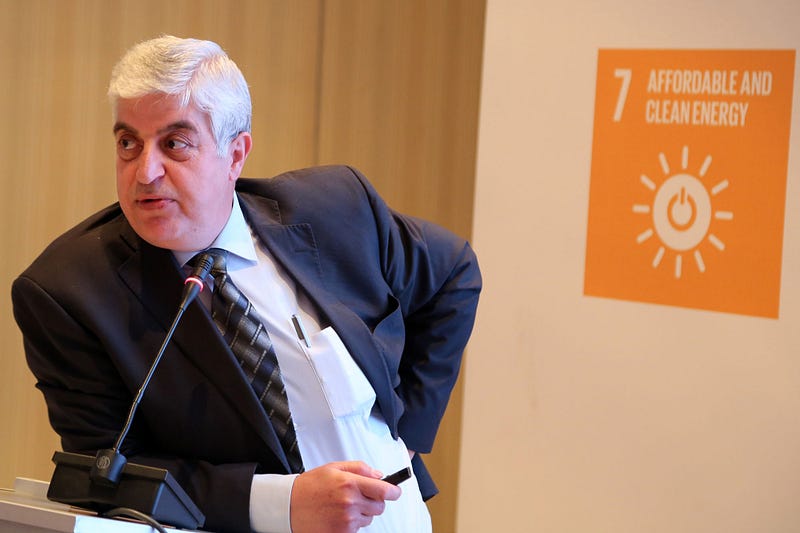Born in 1961, Ziad Obeidat has lived most of his life in Jordan, where he now holds the position of Director of Development Plans & Programs at the Ministry of Planning & International Cooperation. He first began working for the government of Jordan in 1993, less than four years after the country’s first free elections. Since that time, his political career has continued to rise, while his country has gone through many changes.

In the first ten years of the new millennium Jordan's economy grew steadily, but the country was later faced with a number of challenges following the global financial crisis and regional conflicts.
“We are now in the seventh year of the Syrian conflict, which has impacted Jordan at all levels. It is the biggest challenge facing Jordan right now.”
Today, there are 1.3 million Syrian refugees living in Jordan, 89 per cent of whom live in Jordanian hosting communities. This sharp population increase has raised unemployment rates, and has affected the country’s infrastructure, services, energy production, and health and education systems – not to mention the effect the crisis has had on the tourism industry in Jordan and the whole region. “Despite these challenges,” says Mr. Obediat, “the government is committed to safeguarding its past achievements and continuing along the road to sustainable development.” Jordan is turning its current circumstances into an opportunity, having endorsed an economic growth plan towards the achievement of national goals. “But,” stresses Mr. Obediat, “we will need the support of the international community in our efforts to bear the current burden.”
In 2016, Mr. Obediat attended a UNITAR course entitled, “Strengthening Stakeholder Engagement for the Implementation and Review of the 2030 Agenda”, which had an emphasis on the mainstreaming of human rights and gender equality. He was drawn to the training because he felt it would increase his understanding of the unique challenges faced by Jordan’s major groups and stakeholders, as well as, his capacity to engage all of them in the process towards sustainable development. “The course provided us with an opportunity to learn from other countries about approaches they had used,” says Mr. Obediat. “It was encouraging to receive very positive feedback from participants and organizers on the Jordan experience. At the same time, it was helpful to learn that other countries were facing similar challenges.” In particular, he appreciated that the course encouraged attendees to hold workshops with youth, academia, and civil society organizations to discuss their roles in the realization of the 2030 Agenda. “Steps like these will help increase the sense of ownership among these groups in the achievement of the Sustainable Development Goals. It will also feed into the expansion of the road map to SDG implementation which we can all work on in the coming years.”
“The real benefit of the course,” concludes Mr. Obediat, “was the opportunity to learn different approaches with non-governmental organizations. We want to engage everyone in Jordan in our work towards the SDGs – civil society, community leaders, women, youth, people with disabilities. We want to make sure that we are leaving no one behind.”

